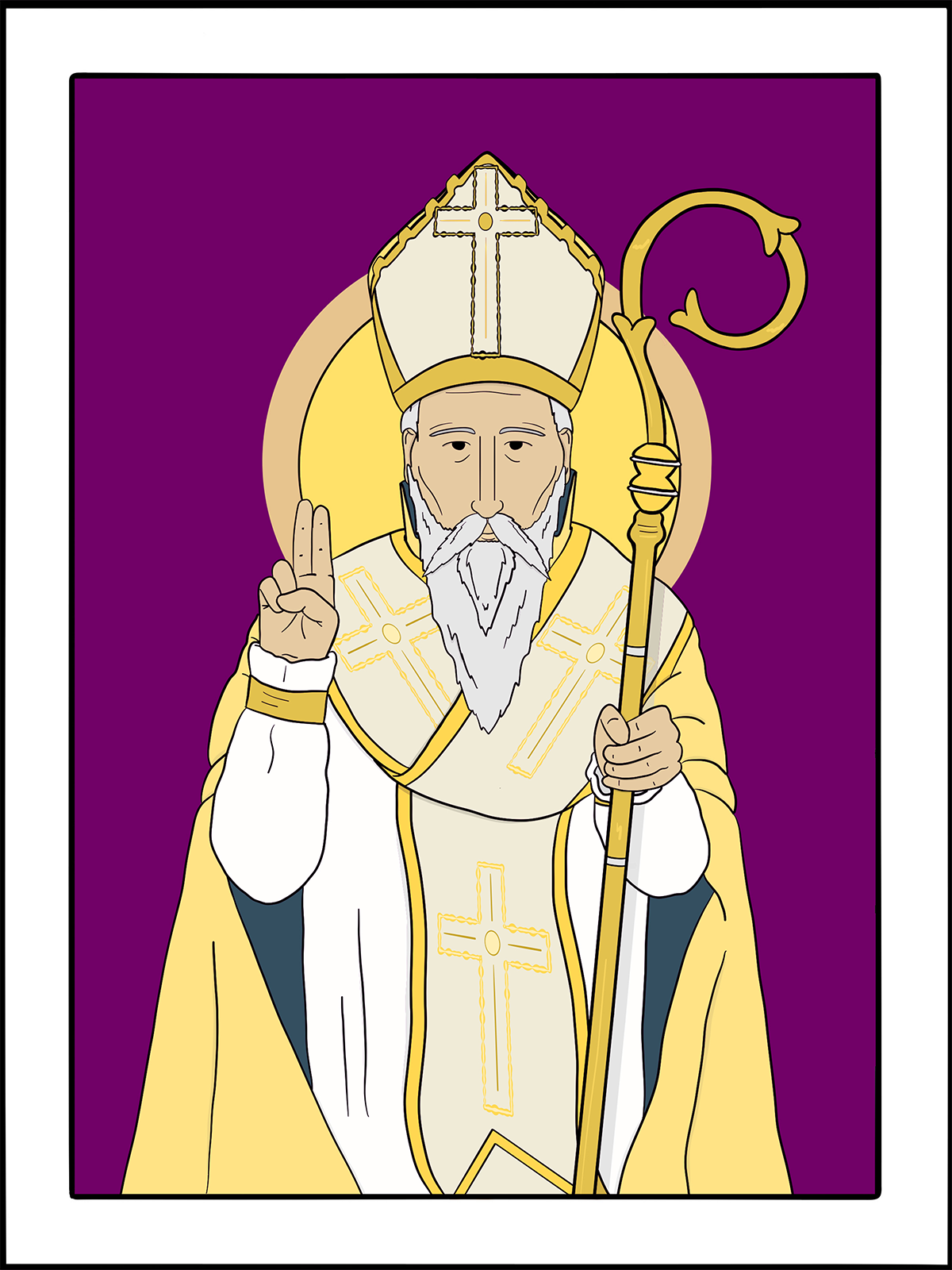
March 23
Gregory the Illuminator
Bishop and Missionary, 332
art by Rev. Kirsten Kohr of UHRICHSVILLE, OHIOAlmighty God, who raised up your servant Gregory to be a light in the world, and to preach the Gospel to the people of Armenia: Illuminate our hearts, that we also in our own generation may show forth your praise, who called us out of darkness and into your marvelous light; through Jesus Christ our Lord, who lives and reigns with you and the Holy Spirit, one God, now and for ever. Amen.
Armenia is traditionally regarded as the first kingdom to become officially Christian, and this set a precedent for the legalization of Christianity by the Emperor Constantine. As a buffer state between the more powerful empires of Rome and Persia, Armenia endured many shifts of policy, as first one and then the other empire took it “under protection.” Armenia’s conversion was actually preceded by those of two other small buffer kingdoms between Persia and Rome: Adiabene and Osroene. However, by the third century, neither of these kingdoms existed as a self-governing entity.
The accounts of Gregory, known as the Illuminator (or Enlightener) and as “Apostle of the Armenians,” are a mixture of legend and fact. He was born about 257. After his father assassinated the Persian King Chosroes I, the infant boy was rescued and taken to Caesarea in Cappadocia, where he was brought up as a Christian. He married a woman named Mary, who bore him two sons. About 280, he returned to Armenia and, after experiencing various fortunes of honor and imprisonment, succeeded in converting King Tiridates to his faith. With the help of the king, the country was Christianized and paganism was rooted out. About 300, Gregory was ordained a bishop at Caesarea. He established his cathedral at Valarshapat, with his center of work nearby at Echmiadzin, which is still the spiritual center of Armenian Christianity.
There is no record that Gregory attended the First Ecumenical Council at Nicaea in 325, but a tradition records that he sent in his stead his younger son Aristages, whom he ordained as his successor. His last years were spent in solitude, and he died about 332.
Excerpted directly from “Lesser Feasts and Fasts 2022,” p. 150-151.
Lessons and PsalmActs 17:22-31
Psalm 33:6-11
Mark 2:18-22
Preface of Apostles and Ordinations

